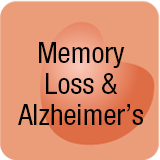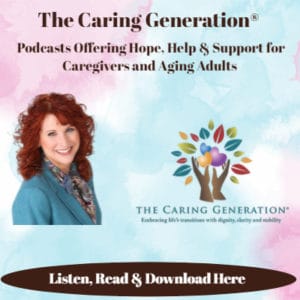Missing the Signs of Alzheimer’s Disease

Pamela D. Wilson, CSA, MS, BS/BA, CG
Many family members are unaware of the early signs of memory loss, cognitive impairment, dementia or Alzheimer’s disease because. They assume whatever they are seeing relative to memory loss is a normal process related to aging. And physicians, in the fifteen minutes they see a patient, look for signs of chronic illness — not signs that memory loss is creating issues with daily activities or safety.
Being realistic, most of our aging family members are on their best behavior when they go to the doctor, they’re dressed well, usually have good hygiene and have a few aches to complain about. Issues with memory loss never are discussed, because if someone has memory loss it’s likely they can’t remember they have the problem. Due to work schedules it’s less likely that family members are available to attend medical appointments with their older parents or relatives. Thus diagnosing memory loss early becomes a challenge when there is no one present to mention concerns to a physician.
 Many of my clients are unable to remember occurrences in their daily lives, some small, some significant. I have clients who were in automobile accidents or who were required to take a driver’s exam multiple times and failed who have no recollection of these events. Many are in disbelief that they cannot remember something so “significant”.
Many of my clients are unable to remember occurrences in their daily lives, some small, some significant. I have clients who were in automobile accidents or who were required to take a driver’s exam multiple times and failed who have no recollection of these events. Many are in disbelief that they cannot remember something so “significant”.
According to a study by the Alzheimer’s Association, nearly 95 percent of family members agree that they would encourage a loved one to seek early diagnosis upon suspecting signs of Alzheimer’s disease. However, of the 34 percent who previously thought a loved one had the disease, only about one-quarter prompted that person to take a screening exam for Alzheimer’s Disease and less than 40 percent encouraged initiating a conversation with his or her doctor.1
Talking about memory loss, cognitive impairment, dementia or Alzheimer’s disease is difficult and frightening especially for the individual who fears they may be losing their mind. Alzheimer’s is a progressive and irreversible disease with no cure. The only treatment is medication to help manage the rate of memory loss and this is not effective for all individuals.
The challenge arises when an adult child or spouse attempts to bring up the subject and the individual with the memory loss reacts negatively; denies the issue or has simply progressed so far along that they become angry and are unable to follow the conversation. Roles reverse. The adult child reverts back to being a very young child, fearful of upsetting the parent and the subject is dropped.
This is why early diagnosis is extremely important. The planning that must go into making decisions for long term care is better acted upon when the individual with the memory loss is able to participate, not stall the process because of inability to comprehend the situation.
Unfortunately many families do not take action until the situation has gone well beyond the early stage of the disease which is why discussing the subject becomes difficult. And lack of planning does not always occur on purpose, it occurs because there was no one able to identify the early signs in order to obtain a diagnosis.
I serve as an advocate for individuals and family members and discuss the importance of not only talking about the subject of care related to memory loss but also the costs and realities of planning for future care. Retaining an advocate who does not have a personal interest in the situation helps smooth the way for open and loving conversations to support the best interest of the person who needs the care and supports involved family members who are unfamiliar with the disease process, costs of care and long term planning.
Sources:
1 Alzheimer’s Disease 2008: Current Attitudes and Perceptions Survey.
Copyright 2012, 2013 Pamela D. Wilson, All Rights Reserved
Return to Memory Loss & Alzheimer’s PageReturn to All Category Page



